Are Personal Injury Settlements Taxable?
As a personal injury law firm, we understand the complexities of personal injury law and the importance of providing comprehensive guidance to our clients. One common concern that arises during personal injury claims is the taxability of settlements.
In this article, we will explore whether personal injury settlements are taxable in Canada and provide valuable insights into the tax implications individuals may face. It’s crucial to have a clear understanding of these implications to make informed decisions regarding your personal injury settlement.
Understanding Personal Injury Settlements
Before diving into the tax aspects, let’s first establish what a personal injury settlement entails. When someone suffers harm or injury due to the negligence or wrongdoing of another party, they may file a personal injury claim seeking compensation.
Personal injury cases can stem from a wide variety of incidents, including car accidents, slip-and-fall accidents, and other causes. In many instances, the injuries suffered also create the necessity for long-term disability claims. The primary purpose of a personal injury settlement is to provide financial support to the injured party and help them recover from the damages they have suffered.
Taxability of Personal Injury Settlements
Now, let’s address the crucial question: Are personal injury settlements taxable in Canada? The general rule is that personal injury settlements are not considered taxable income under the Income Tax Act. However, it’s essential to examine the specific circumstances and elements of the settlement to determine its taxability.
According to the Canada Revenue Agency (CRA), general damages and special damages received for personal injury or death are excluded from taxable income. This means that the settlement money you receive for compensation purposes, such as pain and suffering, medical expenses, and emotional distress, is typically not subject to income tax.
It’s important to note that there may be certain elements within a personal injury settlement that could be considered taxable income. For instance, if the settlement includes compensation for lost wages or includes interest or investment income earned on the settlement amount, these portions may be taxable.
Factors Influencing Taxability
The taxability of personal injury settlements can also be influenced by various factors, including:
- Types of Damages: Different types of damages awarded in a settlement may have varying tax treatments. For example, compensation for out-of-pocket expenses directly related to the injury may be non-taxable, while punitive damages might be subject to taxation.
- Lost Wages: If the settlement includes compensation for lost wages or income replacement, you typically will have to pay taxes on it. The settlement amount intended to replace the income that would have been earned is considered employment income for tax purposes.
- Investment Income: Any investment income earned from the settlement amount could be subject to taxation. It’s crucial to consider the potential tax implications of investing the settlement funds.
To determine the taxability of specific elements within your settlement, it is advisable to consult with a qualified tax professional or accountant who can provide personalized guidance based on your circumstances.
Guidance from the Canada Revenue Agency
To ensure compliance with tax regulations, it is essential to seek guidance from the Canada Revenue Agency. The CRA has provided specific guidelines regarding the tax obligations associated with personal injury settlements. It’s important to note that exceptions and specific circumstances may apply, depending on the details of your case. While the general rule states that personal injury settlements are non-taxable, it’s important to review the CRA’s position on settlement money.
The Role of a Personal Injury Lawyer
Navigating the complexities of personal injury settlements, including their tax implications, can be challenging. This is where an experienced personal injury lawyer becomes invaluable. A personal injury lawyer can provide essential assistance throughout the settlement process, including addressing tax concerns. Here’s how they can help:
- Knowledge and Expertise: A personal injury lawyer has in-depth knowledge of personal injury law and the tax implications surrounding settlements. They can guide you through the legal and tax aspects, ensuring you understand your rights and obligations.
- Proper Documentation and Reporting: A lawyer will assist you in documenting and reporting the settlement appropriately to the CRA. They will ensure that all necessary forms and paperwork are completed accurately and submitted within the required timelines.
- Maximizing Your Settlement: An experienced personal injury lawyer will work diligently to protect your interests and strive to secure the maximum compensation available under the law. They will help evaluate the various elements of your settlement to minimize potential tax liabilities while ensuring you receive fair and just compensation.
Seeking Professional Advice
Given the potential complexities and implications surrounding the taxability of personal injury settlements, it is essential to seek professional advice. Consulting with a tax expert or accountant who specializes in personal injury settlements can provide clarity and ensure compliance with tax regulations.
Engaging the services of an experienced personal injury lawyer is also highly recommended. At McNally Gervan, our team of skilled personal injury lawyers has extensive experience in handling personal injury claims. We can provide personalized guidance tailored to your specific situation, ensuring that your rights are protected and that you make informed decisions.
Consult McNally Gervan for Help with Your Personal Injury Case
At McNally Gervan, we are committed to providing comprehensive guidance and support throughout your personal injury claim process. Contact us today to schedule a consultation with a car accident lawyer, a slip-and-fall lawyer, or any other kind of personal injury attorney on our team and learn more about how we can assist you in your claim.







Follow Us